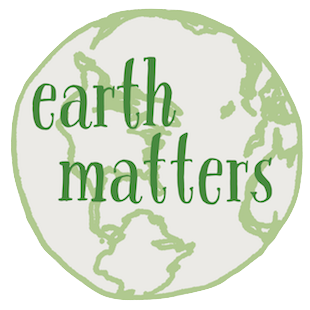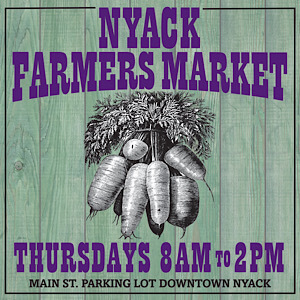by Susan Hellauer
Earth Matters focuses on conservation, sustainability, recycling and healthy living.
If Earth Matters to you, sign up for our mailing list and get the next installment delivered bright to your inbox.
A version of this article was originally published in 2018.
This is it. It’s time for that once-and-forever purge of paperwork and possessions. But where and how to start? That’s where Nyack’s own guru of get-it-outta-here comes in. Kathy Schwarz is a professional nutrition and health educator, who teaches college and medical school courses, and also runs workshops for the rest of us. Her mission? To help people simplify their lives to reduce stress and to live more sustainably. Before the pandemic, you’d find her at the New City Library where she led “Pare Down/Cheer Up,” a monthly discussion/support group about the personal and societal benefits of learning to live with less.
Schwarz’s workshops on health, nutrition, environmental topics, and paring down were offered through her own not-for-profit “Pulling at the Roots” (pullingattheroots.com). She’s also an active volunteer with the Rockland Sierra Club and climate advocate with 350NJ-Rockland. We talked about her workshop, and about the ins and outs of paring down and sustainability.
EM: What were your inspirations for doing this kind of “paring down” education?
Kathy Schwartz: If you want to go way back, it was the 1992 surprise best seller Your Money or Your Life, by Joe Dominguez and Vicki Robin. That’s when I really started looking at America’s addiction to consumerism, which I think is still out of control.
Another inspiration was the Center for a New American Dream (now called New Dream), an organization devoted to getting people to think about consumption and the real American dream. Does it mean we all have to have a big house and three cars and buy expensive gifts for everyone we know?
I wanted to see if I could make a broader impact, and in 2013 began doing library workshops around the holiday season to find ways to make [people] less materialistic and stressful. These were very successful, and eventually became the regular monthly workshops I run today in New City, and at the Englewood, N.J. library.

Banishing piles of paper clutter feels oh so good. Photo: Rebecca Pendarvis via Facebook
Is there anything else in your background that helps you facilitate this kind of discussion and change?
I was brought up in a very frugal household. One of my aunts would send us birthday cards that were the torn-off covers of used birthday cards that she personalized. We thought she was the cheapest person in world. But now I’ve come to appreciate that she was ahead of her time. This is something I now present in my gift giving workshop.
I help people think about all of those things we use that can be pared down and not replaced with more stuff they don’t need. It’s about recognizing what’s a need and what’s a want, and all about being a conscious consumer.
As a facilitator, I bring in the topics for discussion, which range from food choices, to organizing paperwork, to shopping to recycling. We do enforce one main rule: no judgments.
Are you a professional organizer too?
No, I’m an educator, not a professional organizer. I’ll present topics and ask questions, and we talk about ways to get things out of the home, like recycling, donation, or selling. I’ve brought in educators from the Rockland County Solid Waste Management Authority (RocklandRecycles.org) and have talked about the sharing community as well—like a “lending library” model for home and garden tools, for instance.
What are the hardest things for people to part with?
This really varies based on the individual and the reason for paring down. Some empty-nesters have to pare down a big house before moving to a smaller place. Some have to live on a smaller income, either temporarily or permanently. Some just want a simpler, more sustainable life.
For many, it’s nostalgia stuff that’s the hardest to part with. But some of my participants insist that it’s paperwork, and not knowing what to let go of, or when. In a recent session, someone said that he was going through his late father’s paperwork, and found tax returns from as far back as 1966. (You only have to hold on to personal tax documents for seven years.) For many people, it’s books, and for a lot of women it’s clothing and shoes that don’t even fit any more. But if they were expensive, it can be hard to let them go.
Some have a hard time with items related to an earlier phase of their working life. I struggle with this too. I’m not the best model for that one.
There was a recent article about the “zero waste movement” in the Washington Post, which featured a family who create just a tiny jar’s worth of trash each week. Pretty astounding! Does your “pare down” group relate to this movement at all?
We have discussed it, including the effort to avoid bringing plastics into the home. It’s kind of consciousness-raising about packaging and marketing issues. For example, we’re constantly being convinced that we need a separate, special cleaning product for every item in our home—one for the sink, one for toilet, one for the shower, one for countertops . . . and one is often more toxic than another, by the way. It’s the same for cosmetics and personal care products, too, because some marketer told us that we need to look a certain way. I often refer people to the Environmental Working Group for information about these kinds of products.

“Ta-da! Week 19 trash in a 4” mason jar. Trash includes receipts, produce stickers, painter’s tape (which I reused twice before tossing) and a couple tie wraps.” Tippi Thole, “TinyTrashCan” via Facebook
Yes, my mom would just say “vinegar, baking soda and elbow grease” if you asked her about how to clean anything at all. So, are there other reasons, besides downsizing and minimizing waste, for people to pare down?
Absolutely. Some people want or need to save money, but many are thinking about their health. Getting clutter out of the house and having more money on hand is a way to live less stressfully, which is good for your mental and physical health. But last week’s Pare Down/Cheer Up meeting was about reducing meat consumption. If we want to live more sustainably, we know that we have to cut back on meat. And what’s fantastic is that it’s also helpful for our wallet and our health.
Sometimes I think I should change the name of it to something greener because, really, the concept of living more sustainably is my ultimate motivation. But this workshop, and this goal, is for everyone, regardless of how—or whether—they think about sustainability.

Pare Down/Cheer Up workshop leader Kathy Schwarz gathers some meat-free dinner from the Nyack Community Garden. Photo Courtesy Kathy Schwarz
Have you found that this Paring Down/Cheering Up flows over to other areas of life?
Living simply emphasizes the value of relationships over rampant American materialism that surrounds us on every side.
I lived for two years in Malawi, one of the poorest countries in Africa, where people had very little, and relied on family and friends to get by. It was a big adjustment going over there, where I had to live very simply. But, surprisingly, coming back was harder. I was thrilled to see my family again, but the contrast in the value we place on material things was almost overwhelming.
For people who really want to make changes as quickly as possible, what kind of help do you offer?
I have some inventory forms for people to go through, to help start the process. I suggest starting with one drawer, shelf, box, small closet or pile of paperwork. When things seem overwhelming, the only way to start is small. The inventory list prompts questions like, “Is this a want or a need?” and “When was the last time you used this item?” It’s not so much about doing an actual inventory, but to prompt the necessary questions.

One of the Pare Down/Cheer Up “inventory” forms to help the user make “keep or toss” decisions. Image courtesy Kathy Schwarz
Most people go for public spaces first, which could be a good first step, since items that are harder to let go—like memorabilia and photos—are probably in the personal spaces in a home. But if you’re like most people and tend to move that pile of paperwork from the living room to a personal space when someone is coming over, and then back again, then that’s where you should start.
Learn more:
- Get inspired to exit the consumerist rat race and live more simply with less stress. Attend a meeting of Pare Down/Cheer Up at the New City Library on the second Monday of the month at 1p, or the Englewood Library on the third Tuesday of the month at 3p.
- Kathy Schwarz’s Pulling at the Roots (PullingattheRoots.com) is a not-for-profit educational organization, teaching about the necessities and the advantages of living more simply and thus more sustainably.
- New Dream “empowers individuals, communities, and organizations to transform the ways they consume to improve well-being for people and the planet.” (newdream.org)
- “She cut her weekly trash down so much it fits in an unbelievably small jar” (7/7/2018, Washington Post)
- Tippi Thole’s TinyTrashCan.com. “My tiny trash can motivates me to make sustainable choices every day, like buying less, avoiding plastic and eliminating food waste. Added benefits: I’m saving money, living healthier and lowering my environmental footprint in the process.”
- Environmental Working Group (ewg.org)
- Facebook group Journey to Zero Waste
Read Earth Matters every Wednesday on Nyack News And Views, or sign up for the Earth Matters mailing list.
Earth Matters is a weekly feature that focuses on conservation, sustainability, recycling, and healthy living. This weekly series is brought to you by Julie Wendholt, Financial Advisor & Vice President of Pell Wealth Partners, a private wealth advisory practice of Ameriprise Financial Services, LLC.










